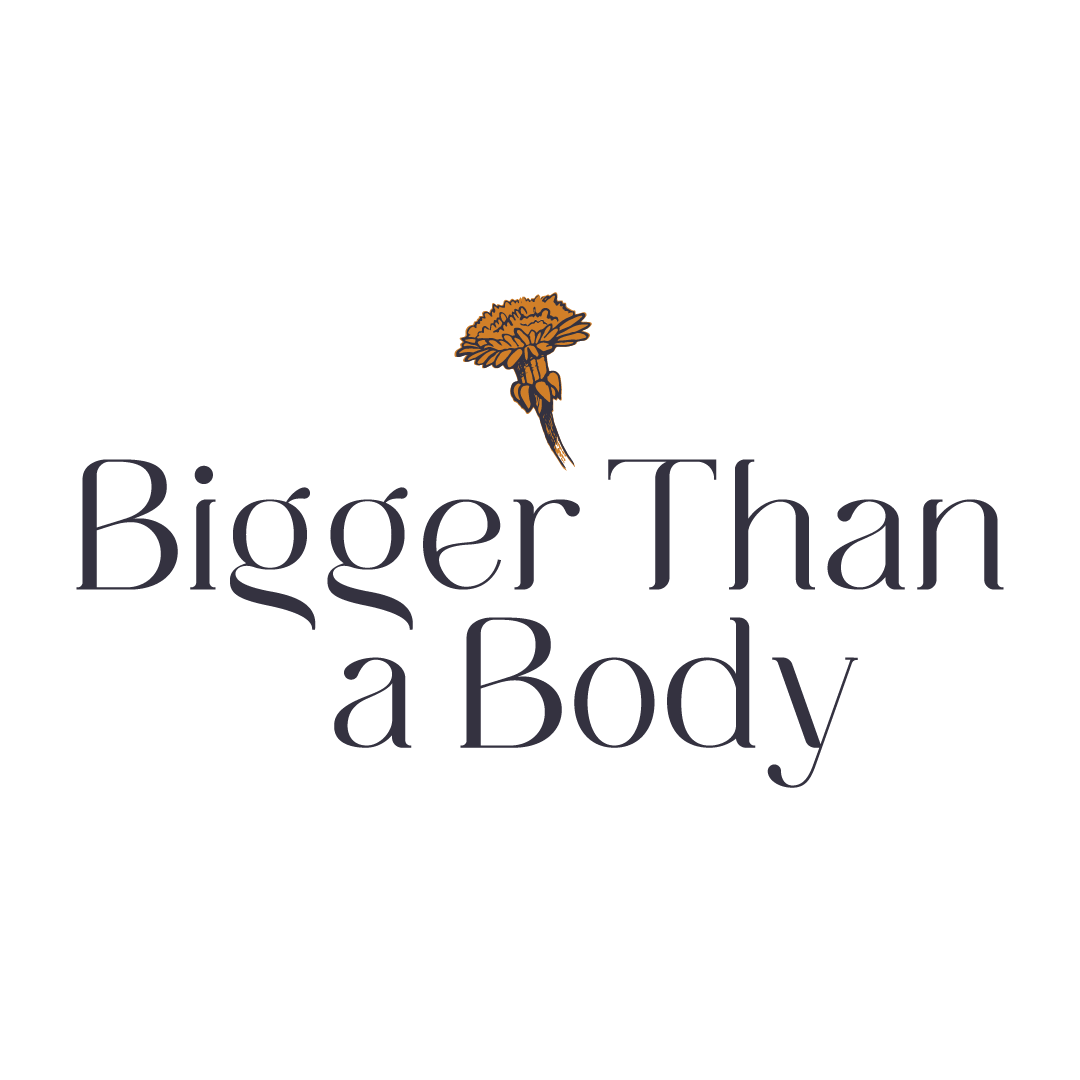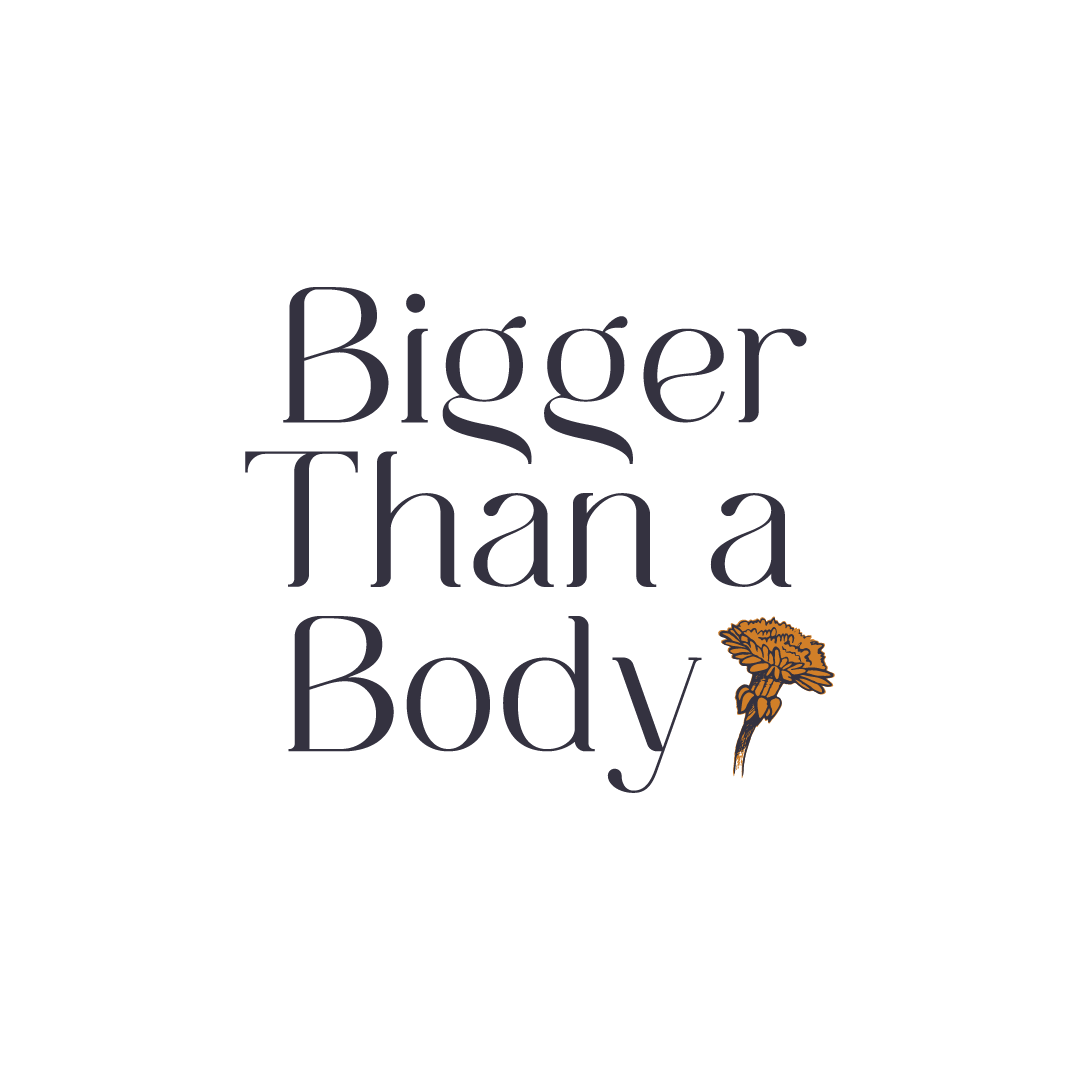5 Questions to Explore If You Want a Smaller Body
Image by Svitlana from Adobe Stock
You’re hard-pressed to come across someone who radiates unwavering body love. More often than not, the desire is to be thinner, trimmer, tighter, and lighter.
Why is this?
Much of how we think and feel about bodies stems from the indoctrinated belief that being slim engenders desirable outcomes. Outcomes like:
Happiness
Physical attraction
Career success
Self-confidence
Self-control
Health
If you’re not thin (or perceive yourself not to be thin enough) and internalize the idea that a slimmer physique is a superior one, you may take drastic measures to manipulate your body into meeting this perceived ideal.
As you meticulously count calories, militantly exercise, or engage in other disordered eating behaviors, you carry the hope that it will all be worthwhile.
But the results aren’t coming in. Or, if they are, they don’t stick or you don’t experience the outcomes you hoped they would bring.
In turn, you’re resentful. You’re afflicted. You’re at complete and total war with your body.
But what if I told you it doesn’t have to be this way? What if I told you that, without deliberately shrinking your body, you could be happy, lovable, successful, confident, and healthy? Would you believe me?
My hope is after reading this you do.
Ask Yourself These Five Questions
Diet culture and thin glorification are so ingrained in Western society that many don’t even think to take a step back and question their legitimacy.
The rules, the restrictions — they become the norm. The more you abide by them, the more gratification you feel. Deep down, though, you know something isn’t right. You sense a void, a longing, a voice that says, “I’m hungry, please feed me.”
But your thinking is clouded. You’re not sure if you should honor your intuitions or maintain your loyalty to the diet or eating disorder (ED) that feels so safe and a part of you.
Perhaps these questions can help guide you.
1. Am I seeking to lose weight because I want to be healthier, or do I believe my current body is not good enough?
If you have a clinically diagnosed medical condition or believe your current body holds you back from fully experiencing life, pursuing weight loss could be a healthy and sensible step for you, and there is no shame in that!
However, if your main mission is to lose weight and internal health isn’t a primary concern, I also see you. I spent nearly 20 years battling multiple eating disorders and compulsive exercise, so holistic health was anything but front and center for me.
Some questions to ponder if your weight loss pursuits are predominately based on image:
What one word would I use to describe my ideal relationship with my body? Has dieting or my ED gotten me this? If yes, how long does it last?
Am I willing to maintain certain habits forever e.g.,(abstaining from eating certain foods, going to bed hungry, limiting myself from eating more food even when I want it)? Why or why not?
What other aspects of my life could I focus on to improve my happiness, self-confidence, and well-being?
2. Are the measures I’m taking safe and effective, and can I see myself being happy leading this lifestyle?
For the dieter
As the dieter, you trust and assume the plan being pitched to you isn’t harmful and generates lasting results, especially if it’s one your own primary care provider endorses.
Unfortunately, many commercial weight loss programs lack peer-reviewed reports or empirical evidence to support their safety and efficacy. In addition to common physical side effects, such as low energy levels, constipation, headaches, brain fog, and poor sleep, the long-term havoc fad diets wreak on mental health and eating habits (including the development of eating disorders) often gets overlooked.
35% of “normal” dieters progress to pathological dieting. Of those, 20–25% progress to partial or full–syndrome eating disorders (Shisslak & Crago, 1995).
Another question to truly reflect on as you consider a diet is: Can I see myself being happy leading this lifestyle?
Many diets do generate weight loss, but what will happen once you veer away from the diet? Will you be content eating a low-carb diet forever or always having to log your food intake? Think the guidelines through.
For the eating disorder sufferer
If you are battling an eating disorder like anorexia, bulimia, binge eating disorder, or orthorexia, you probably know that your lifestyle is not only unhealthy but downright destructive. You don’t give it up because the unknown feels far too scary.
If you identify as someone with an eating disorder, ask yourself: Why did I decide to read this article? Perhaps you will learn this lifestyle is not one you truly want to maintain. I’m here to tell you that if I could recover, I wholeheartedly believe you can, too.
3. Is the fight to be thinner worth all the sacrifices that come with it?
Calorie counting, obligatory trips to the gym, and attachment to the scale are just a few of the common practices adopted in the quest to be thinner. The time, deprivation, harmful side effects, (mental and physical), and, oftentimes, money spent are exorbitant, and all for desired results that aren’t guaranteed.
Write down five perceived benefits you derive from your personal quest for a slimmer body.
Next, write down the costs that come with each of those benefits.
Lastly, assess your responses. Are the prices you have to pay truly worth it? Are there other ways aside from dieting or using disordered eating behaviors that you could achieve the same outcomes?
4. What am I teaching myself and others about bodies by directly attaching my worth to my size?
If having a thin body is a priority for you, it’s worth taking some time to examine how your actions to attain one might be perpetuating the beliefs about bodies Western society has indoctrinated upon us.
Ask yourself:
What beliefs do I hold about smaller bodies?
What do I believe about bigger bodies?
Do I want to hold onto these beliefs?
How are these beliefs serving me?
How would my life change if I let these beliefs go?
How do these beliefs influence the way I speak about others?
How do these beliefs influence the way I speak to and take care of myself?
5. What if I accepted my body as it is now and, instead, found more ways to better honor and respect it?
Gaining acceptance of your body in a weight-centric world is a bold and courageous endeavor. It will take time to develop and doesn’t mean you have to love or even like your body. It simply means not resisting it, which only causes more suffering, more self-reproach, and keeps you stuck in any unhealthy cycle that has taken over.
When you begin exploring the idea of body acceptance, some really amazing things can happen.
You develop a connection with your inner being/soul self/wise self that allows you to channel a new level of awareness in how you think, feel, and live.
You’re able to focus on changing unhelpful behaviors, even if just at a micro level.
You start to truly feel your feelings and challenge your thoughts in a nonjudgmental way.
You recognize and show gratitude for the many simple pleasures in life you were once too preoccupied to notice.
You begin to believe that there may be more to life than chasing a smaller body, after all.
Key Takeaways
Happiness, health, esteem, and pride are attainable in bodies of all shapes and sizes.
Yes, this means challenging the status quo.
Yes, this means exploring your own values and belief system.
Yes, this means doing things differently, which can be scary and uncomfortable.
Options to consider if you’re sick of dieting or living with an eating disorder
Consider working with a therapist and/or registered dietitian who specializes in ED treatment. Even if you don’t meet the diagnostic criteria for an ED, their expertise is beneficial for long-time dieters or those struggling with food and body image.
Read books about intuitive eating, self-awareness, and body acceptance, such as: More Than a Body, Intuitive Eating: A Revolutionary Program That Works, Peace Is Every Step: The Path of Mindfulness in Everyday Life, The Untethered Soul, and The F*ck It Diet.
You can also email me at mikaela@biggerthanabody.com if you think coaching could be a good fit for you or if you’re seeking guidance on which support services to pursue.
As you ponder the relationship you’d like to have with your body moving forward, I leave you with these final words:
You are a soul with a body; not a body with a soul. May you sufficiently nurture both.


